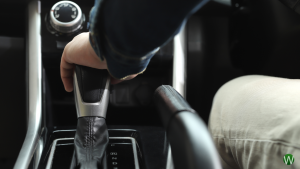Find the right instructor.
Well before you start thinking about booking a test, you need to find a driving instructor who is compatible with you. You need to be able to trust and feel comfortable with your instructor. The right instructor should adapt to your learning style and will increase your chances of passing the first time. If you don’t like your instructor, don’t be afraid to switch to a different one. Book a taster lesson to find the right match.
Always look for learning opportunities.
Think like a driver, even when you’re in the passenger seat. At junctions or roundabouts, mentally run through your mirror, signal, maneuver steps to cement the routine in your mind. Look out for and think about how you would respond to road hazards you see on the way. Thinking this way helps those good driving habits become second nature to you, which will be very useful in your test.
Study for ‘show me, tell me’ questions.
These questions are designed to test your practical knowledge. You could be asked things like how to check if your brake lights are working or to show your examiner where you would refill the engine coolant. Make sure your instructor tests you on these questions and spend some time studying the answers yourself. This information will be useful for your test and for your future as a driver.
Know what to expect on the test route.
Driving test routes aren’t published, so there’s no way to know exactly where you will be asked to drive. However, you can predict the sorts of things you will be asked to deal with during the test. Most test routes will include challenges like junctions, crossroads, and large roundabouts. Practice how to handle these with confidence so you’re not thrown when asked to navigate them during your test.
Practice.
Practice your driving and manoeuvres as often as you can. This will help you to feel much more confident during your test. If you can, practice in the car you will be taking your test in. If this is your instructor’s car, book some extra lessons or blocks of lessons near your test so you can get more practice in. Outside of lessons, ask another driver to take you out to help you practice.
Revisit your theory.
After you’ve passed your theory test, don’t forget all about it. Before your practical test, revisit your theory study. Knowing the signs and the highway code while you’re driving will help you to make better decisions and will boost your confidence. Your examiner will be able to see you know what you’re doing and are capable of making safe, informed decisions as you drive, making you more likely to pass.
Take a mock test.
For your theory test, take some mock tests online. The DVSA have lots of these available online, and there are also programs that you can buy to help you study. Get in plenty of practice to help you feel more relaxed for the real thing, and to help you learn everything you will need to know. This knowledge will help with your practical test too.
Stay calm and don’t panic.
It’s natural to feel nervous before your driving test. This can affect you even more if you know you have made a mistake or your mind goes blank at a junction. Try not to panic. If you’re calm, you will make fewer mistakes. You could try calming techniques like deep breathing if you’re really struggling. Your examiner will know you are nervous so remember that you don’t need a perfect score to pass.
Eat before your test.
If you’re nervous, you might struggle to eat much before your test. Don’t be tempted to skip eating. Make sure you are properly hydrated and have eaten something. This will make you better able to concentrate, helping you to perform much better. Even eating something light can help. Just don’t take the test on an empty stomach, as you won’t have the fuel to perform as well as you should.
Remember that you aren’t the examiner!
Whatever you think about your performance during the test, the examiner’s decision is final. This can mean not arguing if you disagree with a fail; but can also mean not assuming you have failed if you make a mistake. What the examiner will be looking for is how you respond to a problem. If you do make a mistake, but then make a safe decision to correct it and maintain the safety of yourself and other road users, you might be alright.
Photo by Hareez Hussaini on Unsplash






